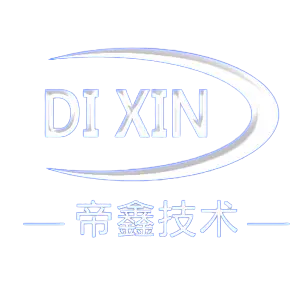Unlocking Innovative Solutions for Modern Industrial Needs

===INTRO:===
In today’s rapidly evolving industrial landscape, staying ahead means more than just traditional practices; it requires embracing innovative solutions that address modern demands. As industries face increasing pressure for efficiency, sustainability, and technological integration, companies must leverage cutting-edge advancements to remain competitive. This article explores how modern technologies are unlocking new potentials in industrial operations, paving the way for smarter, more efficient manufacturing processes.
Embracing Cutting-Edge Technologies to Meet Industrial Demands
To keep pace with the fast-changing industrial environment, integrating advanced technologies is essential. Innovations such as automation, artificial intelligence, and the Internet of Things (IoT) are revolutionizing traditional workflows, enabling real-time monitoring and predictive maintenance. These tools help industries optimize processes, reduce downtime, and enhance product quality. By adopting such state-of-the-art solutions, companies can respond swiftly to market shifts and customer expectations, ensuring their operations are both resilient and agile.
Furthermore, the development of new materials and manufacturing techniques offers additional avenues for innovation. Modern materials with superior strength, durability, and environmental friendliness are becoming vital in producing longer-lasting and more sustainable products. Advanced fabrication methods, including additive manufacturing, allow for complex designs and rapid prototyping, significantly reducing development cycles. Together, these technologies foster a culture of continuous improvement, empowering industries to innovate at a faster pace.
Lastly, digital transformation initiatives help industries harness data more effectively. Big data analytics provides actionable insights into production processes, supply chain logistics, and customer preferences. This data-driven approach enhances decision-making, minimizes waste, and maximizes resource utilization. By embracing these cutting-edge technological trends, industries can meet modern demands with solutions that are both innovative and future-proof.
Driving Efficiency and Innovation in Modern Manufacturing
Efficiency remains at the core of modern manufacturing, and technological advancements are key drivers of this goal. Smart factories that utilize interconnected machinery and automated systems can operate with minimal human intervention, reducing errors and increasing throughput. These intelligent systems adapt quickly to changing conditions, ensuring optimal performance around the clock. As a result, manufacturers can meet tight deadlines and deliver consistent quality, ultimately boosting profitability.
Innovation in manufacturing also involves rethinking traditional processes for sustainability and environmental responsibility. Using energy-efficient equipment, recycling materials, and implementing green manufacturing practices not only reduce environmental impact but also lower operational costs. Modern industries are increasingly adopting eco-friendly technologies that align with global sustainability goals, helping them build a responsible brand reputation while enjoying economic benefits.
Moreover, collaborative robotics (cobots) are transforming the way human workers interact with machines. By working alongside automation systems, workers can focus on more complex tasks, fostering a more creative and engaged workforce. This synergy between humans and machines accelerates innovation, enabling the development of new products and processes. Ultimately, driving efficiency and innovation in manufacturing requires continuous investment in technology and workforce development—strategies that position industries for long-term success in a competitive global market.
===OUTRO:===
Unlocking innovative solutions for modern industrial needs is no longer optional but a necessity for sustained growth. By embracing cutting-edge technologies and fostering a culture of continuous improvement, industries can meet the evolving demands of efficiency, sustainability, and quality. As technological advancements continue to reshape the manufacturing landscape, companies that adapt swiftly and strategically will be the ones leading the future of industry—innovative, resilient, and ready for the challenges ahead.

